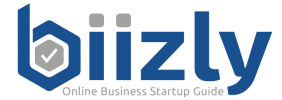The gig economy has been on the rise in recent years, with more and more people opting to pursue freelance work instead of traditional full-time employment. The gig economy offers a great deal of flexibility and independence, but it also presents some unique challenges, particularly when it comes to building a personal brand. Your personal brand is essentially your reputation and the perception that others have of you as a professional. It can have a major impact on your success as a freelancer, influencing everything from the types of clients you attract to the rates you can command. In this article, we will explore the importance of building a strong personal brand in the gig economy and provide tips and strategies for doing so.

Why a Strong Personal Brand Matters in the Gig Economy
A strong personal brand is crucial in the gig economy, as it can set you apart from other freelancers and make it easier for you to find new clients and opportunities. Your personal brand is a reflection of your skills, experience, and values, and it should accurately represent who you are as a professional. In the gig economy, competition can be fierce, so having a well-defined and strong personal brand can give you an edge and help you stand out.
For example, if you are a freelance writer, your personal brand should convey your expertise in writing and your ability to deliver high-quality work on time. If you are a graphic designer, your personal brand should showcase your design skills and your ability to bring creative solutions to your clients’ projects. In both cases, a strong personal brand can help you attract the right clients, negotiate higher rates, and secure more work.
Tips for Building a Strong Personal Brand in the Gig Economy
1. Define your niche
The first step in building a strong personal brand in the gig economy is to define your niche. This means focusing on a specific area of expertise and developing a deep understanding of the needs and challenges of your target market. By defining your niche, you can position yourself as an expert in your field and set yourself apart from other freelancers.
2. Create a professional online presence
In today’s digital age, having a strong online presence is essential for building a personal brand. This means having a professional-looking website, an up-to-date LinkedIn profile, and active social media accounts. Your online presence should accurately reflect your brand and showcase your skills and experience.
3. Develop a consistent message
A key aspect of building a personal brand is developing a consistent message that reflects your values, skills, and expertise. This message should be reflected in everything from your website copy to your social media posts, and should be consistently reinforced in all of your interactions with clients and potential clients.
4. Network and build relationships
Building a personal brand in the gig economy is about much more than just promoting yourself online. It’s also about building relationships and networking with other professionals in your field. Attend events, join online communities, and connect with other freelancers to expand your network and build your personal brand.
5. Deliver high-quality work
Of course, the most important aspect of building a personal brand is delivering high-quality work that exceeds your clients’ expectations. This means being professional, timely, and delivering work that is of the highest quality. By delivering high-quality work, you’ll establish a reputation for excellence and build a strong personal brand.
6 Seek feedback and continuous improvement
Finally, building a strong personal brand is an ongoing process that requires continuous improvement. Seek feedback from clients and colleagues, and be open to constructive criticism. Use this feedback to identify areas for improvement and continuously refine your skills and approach.
Conclusion
Building a strong personal brand in the gig economy is critical to success as a freelancer. Your personal brand is essentially your reputation and the perception that others have of you as a professional. By focusing on a specific area of expertise, creating a professional online presence, developing a consistent message, networking and building relationships, delivering high-quality work, and seeking feedback and continuous improvement, you can establish yourself as a trusted and reliable professional in your field. A strong personal brand will help you attract the right clients, negotiate higher rates, and secure more work. Building a personal brand takes time and effort, but the benefits are well worth it. Start taking steps today to build a strong personal brand in the gig economy and see the results for yourself.



